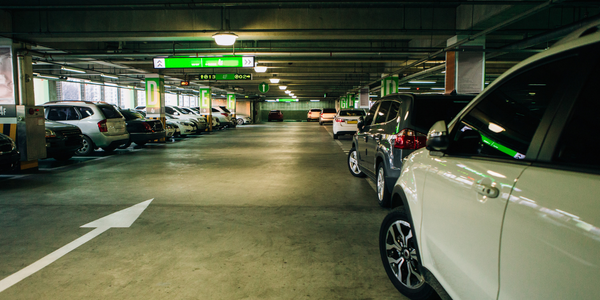Los Angeles Implements IPS Group's Solar-Powered Parking Meters to Enhance Revenue and Efficiency
Customer Company Size
Large Corporate
Region
- America
Country
- United States
Product
- IPS Coin and Card Single-Space Meters
- IPS Solar-Powered Meter Mechanisms
- IPS Web-Based Management System
Tech Stack
- Wireless Connectivity
- Solar Power Technology
- Credit Card Payment Integration
Implementation Scale
- Enterprise-wide Deployment
Impact Metrics
- Revenue Growth
- Customer Satisfaction
- Environmental Impact Reduction
Technology Category
- Functional Applications - Remote Monitoring & Control Systems
- Networks & Connectivity - Wireless Local Area Network
Applicable Industries
- Cities & Municipalities
Applicable Functions
- Facility Management
- Business Operation
Use Cases
- Smart City Operations
- Building Automation & Control
- Remote Asset Management
Services
- System Integration
- Software Design & Engineering Services
About The Customer
The customer in this case study is the city of Los Angeles, a major urban center in the United States with a population of 3.8 million. Known for its car culture, Los Angeles has a significant demand for on-street parking. The city government, led by the Los Angeles Department of Transportation (LADOT), is responsible for managing the city's parking infrastructure. The city faced challenges with its outdated parking meters, which were not only unreliable but also limited in payment options, accepting only coins. This situation was causing revenue losses and dissatisfaction among the public. The city was looking for a solution that would modernize its parking system, improve user convenience, and increase revenue without incurring significant upfront costs.
The Challenge
In Los Angeles, the outdated and unreliable parking meters were causing significant revenue loss for the city. The existing meters only accepted coins, which was inconvenient for users, especially after a recent rate increase. The city needed to upgrade to a more efficient system that could accept credit card payments. However, the primary challenge was the lack of funds for such an upgrade. The city needed a solution that would not require major upfront capital expenses but would still guarantee efficiency, increased revenue, and public support.
The Solution
The city of Los Angeles partnered with IPS Group to implement a lease-to-own contract for new single-space parking meters that accept both coins and credit cards. This public-private partnership allowed the city to upgrade its parking infrastructure without upfront costs. The new IPS meters were installed in the existing single-space meter housings, which saved on demolition and installation costs. The meters are solar-powered, enhancing sustainability, and are wirelessly connected to the LADOT, providing real-time data on meter status and needed repairs. This connectivity allows for proactive maintenance, reducing downtime and increasing reliability. The new meters also offer users the convenience of paying with credit cards, which encourages longer parking durations and increases revenue. The installation of 10,000 meters was completed in 12 weeks, and the increased revenue from these meters was used to pay for the technology.
Operational Impact
Quantitative Benefit

Case Study missing?
Start adding your own!
Register with your work email and create a new case study profile for your business.
Related Case Studies.

Case Study
Turning A Stadium Into A Smart Building
Honeywell created what it called the “intelligent system” for the National Stadium in Beijing, China, turning the venue for the opening and closing events at the 2008 Summer Olympics into a “smart building.” Designed by highly controversial artist Ai Weiwei, the “Bird’s Nest” remains one of the most impressive feats of stadium architecture in the world. The 250,000 square meter structure housed more than 100,000 athletes and spectators at a time. To accommodate such capacity, China turned to Honeywell’s EBI Integrated Building Management System to create an integrated “intelligent system” for improved building security, safety and energy efficiency.
.png)
Case Study
Smart Street Light Network (Copenhagen)
Key stakeholders are taking a comprehensive approach to rethinking smart city innovation. City leaders have collaborated through partnerships involving government, research institutions and solution providers. The Copenhagen Solutions Lab is one of the leading organizations at the forefront of this movement. By bringing together manufacturers with municipal buyers, the Copenhagen Solutions Lab has catalyzed the development and deployment of next-generation smart city innovations. Copenhagen is leveraging this unique approach to accelerate the implementation of smart city solutions. One of the primary focus areas is LED street lighting.

Case Study
Buoy Status Monitoring with LoRa
The Netherlands are well-known for their inland waterways, canals, sluices and of course port activities. The Dutch Ministry of Infrastructure indicates that there are thousands of buoys and fixed items in and near water environments that would profit from IoT monitoring. One of the problems with buoys for example, is that they get hit by ships and the anchor cable breaks. Without connectivity, it takes quite some time to find out that something has happened with that buoy. Not to mention the costs of renting a boat to go to the buoy to fix it. Another important issue, is that there is no real-time monitoring of the buoys at this moment. Only by physically visiting the object on the water, one gains insight in its status.

Case Study
Barcelona Case Study
Barcelona’s heavy traffic and its associated high levels of pollution were the primary factors that motivated some companies and universities to work on strategies for improving traffic in the city centre. Bitcarrier is one of the technologies involved in the In4Mo Project, whose main objective is to develop the applications that form the core of smart mobility, one of the fundamental pillars of the smart city concept.

Case Study
China Mobile Smart Parking
Smart Parking, powered by NB-IoT technology, is making it easier for drivers to find free parking spots. Cities can better manage their parking assets and maximize the revenue available to them as a result. Drivers searching for parking create congestion and pollution by circling and hunting for available parking. Smart Parking services are able to significantly ease these problems by guiding a driver directly to a parking space.







